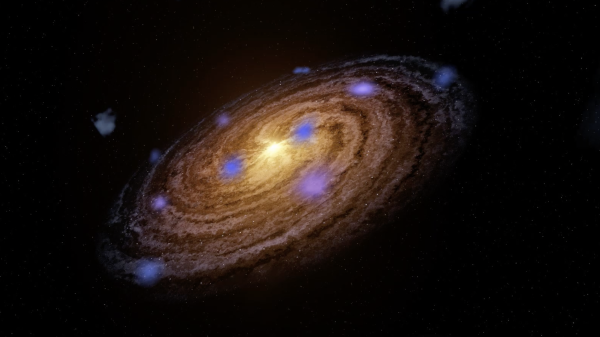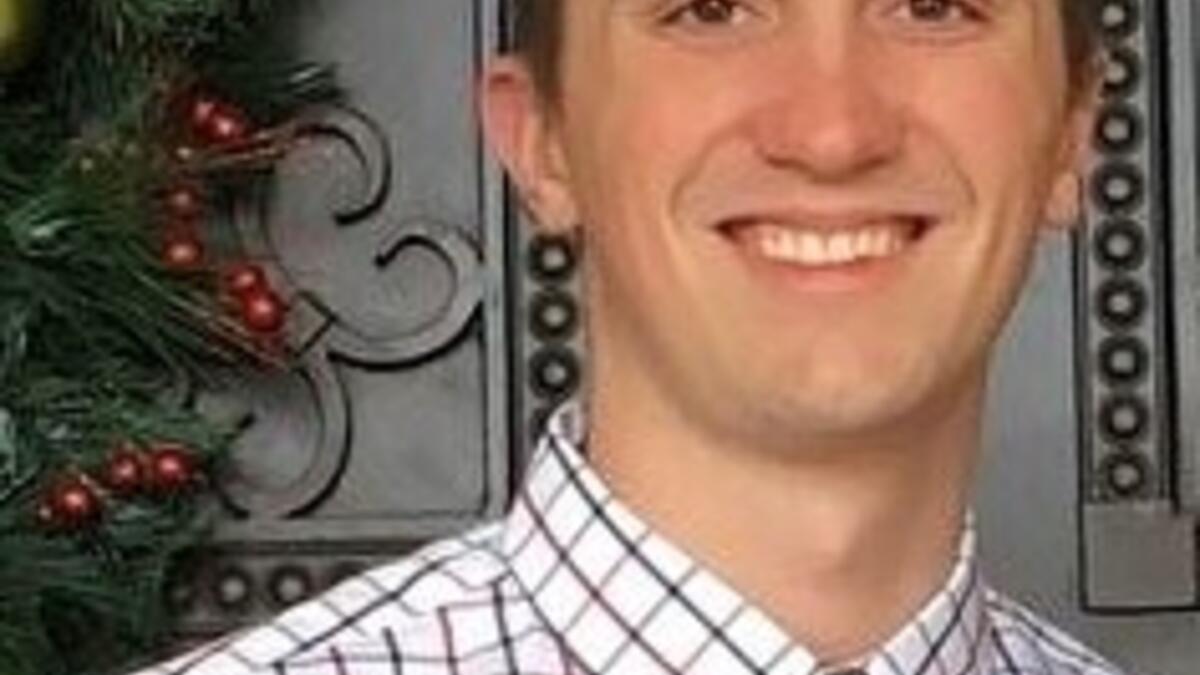Editor's note: This story is part of a series of profiles of notable spring 2021 graduates.
Ethan Duncan will graduate this May with a double major in astrophysics and physics from ASU’s School of Earth and Space Exploration and the Department of Physics in the College of Liberal Arts and Sciences and at Barrett, The Honors College.
Hearing his alumni parents speak highly of the school and faculty of their alma mater, Duncan always had an interest in attending ASU. Duncan researched and discovered ASU ranked as one of the top universities in the nation for interdisciplinary research, an important factor in his decision.
After graduating high school, Duncan embarked on a two-year proselytizing mission for the Church of Jesus Christ of Latter-day Saints in Cebu, Philippines. Upon his return, Duncan made it a priority to remain close to his family in Mesa, Arizona, and finalized the decision to attend ASU.
Duncan is the recipient of numerous awards and scholarships including the New American University President’s Award as a first-year student. He spent research time in the Center for Isotope Analysis at ASU with the guidance of Assistant Professor Maitrayee Bose, and was awarded the NASA Space Grant in 2019.
“Ethan is a clever, hard-working, and mature undergrad in my research team,” said Bose, who oversees the NanoSIMS (Secondary Ion Mass Spectrometer at the nano-scale). “He attempts to solve the problems that come up during his research on his own, he is very independent by nature. He has taken a mentorship role to several new members of my research group. I am very proud of all the research work that he accomplished in the last few years and I am sad to see him go!”
Duncan was also the recipient of the Department of Physics Scholarship, the Ronald Greeley Planetary Science Scholarship, the Mensch Prize for Embedded Intelligence from Barrett, The Honors College, and the Steven Archer Scholarship.
“Each of these scholarships played a crucial role in my ability to attend and focus on my school work,” Duncan said. “I will be forever grateful for those who contributed and continue to make each of these scholarships a possibility.”
Duncan’s collaborative research with Bose instilled in him great research and academic skills, but none more important than the lesson to smile. “If you don’t love what you are doing, then why are you doing it,” Bose would often say.
After graduation, Duncan will attend the University of Virginia to pursue a master’s degree in data science and is planning a career as a machine learning engineer.
Duncan shared a few thoughts about his time at ASU.
Question: What was your “aha” moment when you realized you wanted to study the field you majored in?
Answer: My "aha" moment (was) when I realized what I wanted to study was the second semester of my freshman year at ASU, when I was in the Human Event class, a rigorous socratic seminar-style class required for Barrett students. One of my professors, Joseph Foy, an astrophysicist, shared his work with me and I was hooked! I began looking up research opportunities at ASU and contacted professors to see if they needed an extra undergraduate to give them a hand. It was soon after this encounter that I met with an academic advisor and began considering what switching my major from economics to astrophysics would look like. Soon afterward, I changed majors and the rest is history.
Q: What’s something you learned while at ASU — in the classroom or otherwise — that surprised you or changed your perspective?
A: There is so much that I have learned that has changed me and my perspective while I’ve been at ASU. Before attending ASU I did very well in school without much effort, but since attending school here I suffered from imposter syndrome. This put up barriers to my learning and often made it difficult to ask questions for fear of looking out of place or lacking the intellect to be in Barrett. My perspective changed as I got to know the undergrads who shared many of my same fears, but were willing to put themselves out there to learn and to build relationships with students and professors. I’m so grateful for the people I meet here at ASU and the impact that they have had on me and others.
Q: What’s the best piece of advice you’d give to those still in school?
The best piece of advice that I can give to someone who is still in school is to take care of their mental health. Prioritize getting sleep, eating healthy and especially making time to be with or communicate frequently with friends and family. As one who suffered most of my college years with a mental illness, I cannot emphasize enough that doing these small things will make a world of a difference in your college and life experience. And if you need professional help, there is no shame in getting it and ASU provides counseling services, and trust me, everyone could do with some counseling especially after the last year we just had.
Q: What was your favorite spot on campus, whether for studying, meeting friends or just thinking about life?
A: My favorite spot was the Department of Physics and School of Earth and Space Exploration Student Success Center when it was still open. There would always be our cohort of students figuring out difficult homework problems and discussing fun things happening in life.
Q: If someone gave you $40 million to solve one problem on our planet, what would you tackle?
A: If I was given $40 million dollars, I would put the money partially towards slowing climate change — by either starting a nonprofit or investing in companies that are making a difference — and supporting education initiatives for underprivileged students and students who suffer from a disability.
More Science and technology

Cosmic clues: Metal-poor regions unveil potential method for galaxy growth
For decades, astronomers have analyzed data from space and ground telescopes to learn more about galaxies in the universe.…

Indigenous geneticists build unprecedented research community at ASU
When Krystal Tsosie (Diné) was an undergraduate at Arizona State University, there were no Indigenous faculty she could look to…

Pioneering professor of cultural evolution pens essays for leading academic journals
When Robert Boyd wrote his 1985 book “Culture and the Evolutionary Process,” cultural evolution was not considered a true…
